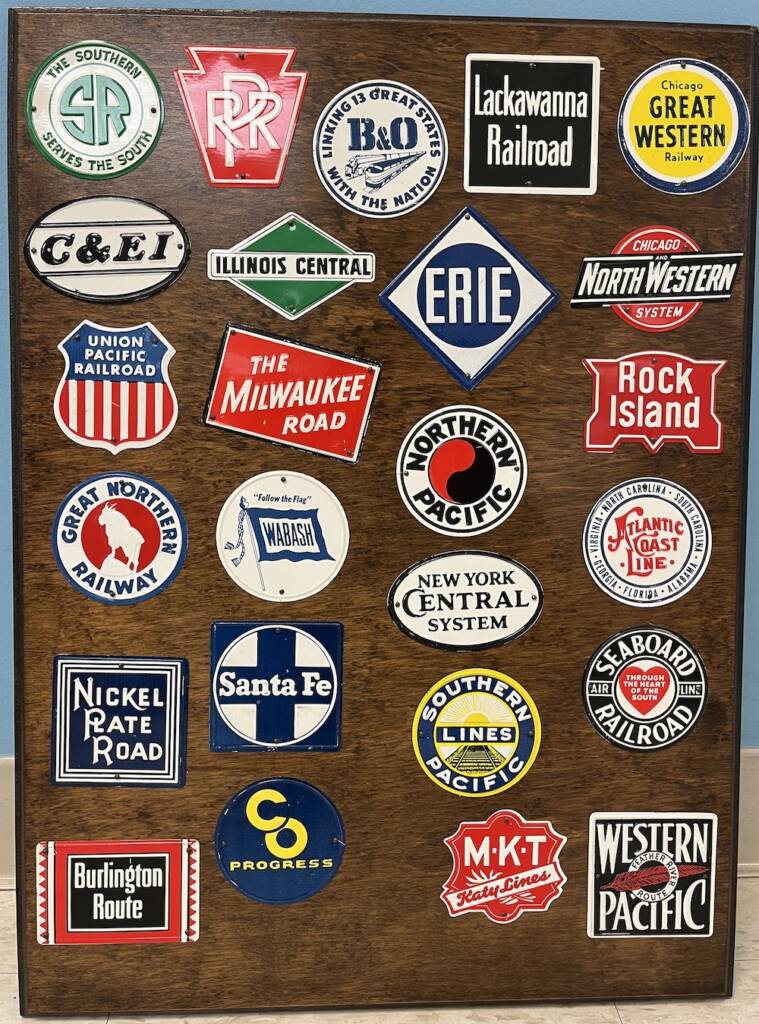
Metal railroad heralds in cereal boxes offered boys and girls during the 1950s one more way to show their fascination with trains, whether full-size or miniature replicas. Kids, eager to discover the premiums packed inside boxes of their favorite breakfast food, had no hesitation about begging their parents to buy box after box of Sugar […]
Read More…
The year was 1933, and the Great Depression was in full swing. Lionel was touting the new “Chugger” sound mechanism in its locomotives and still cataloging the landmark Nos. 396E Blue Comet and 411E State passenger sets. On the back page of the consumer catalog, Lionel introduced something new and unlike anything it had offered […]
Read More…
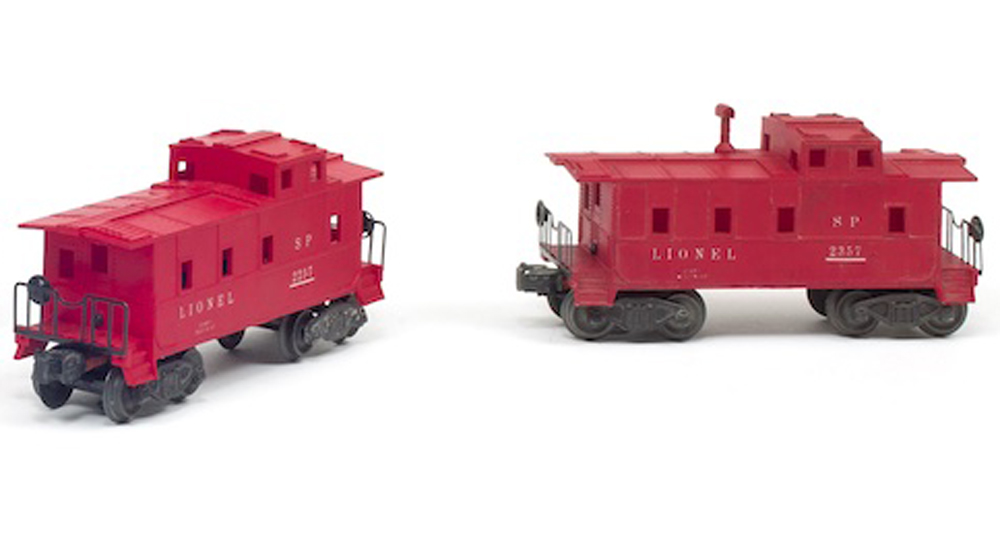
Lionel’s Nos. 2257 and 2357 cabooses changed the line of toy trains in notable ways. The all-but-identical models, first cataloged in 1947, introduced three-rail enthusiasts to a type of caboose that looked different from what Lionel had been showcasing during the final years of the prewar period and the first two years of the postwar […]
Read More…
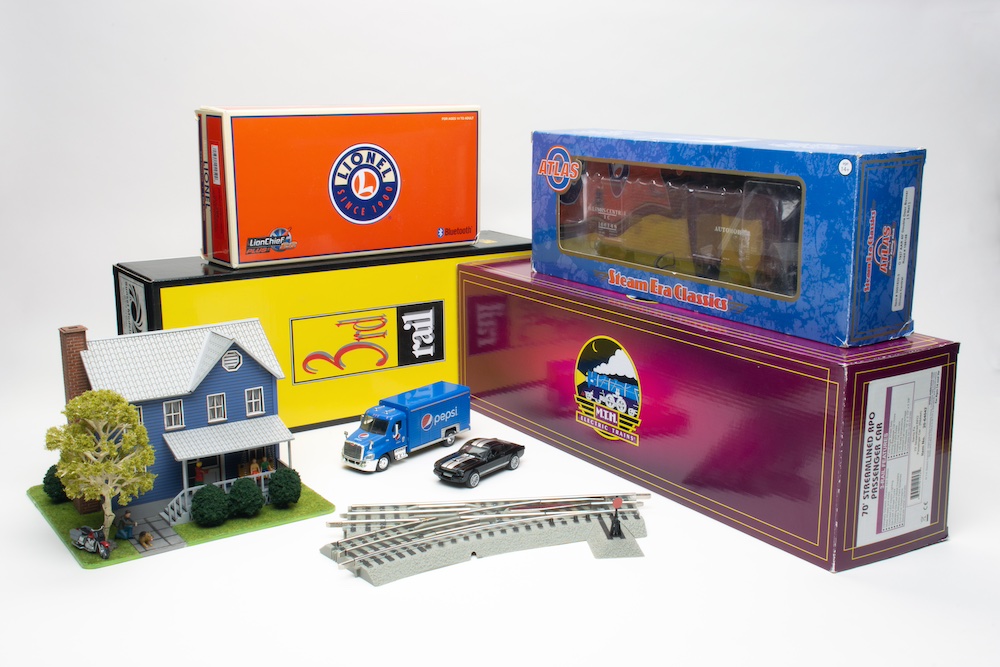
Manufacturers come and go in model railroading, and the O gauge market is no exception – 2 or 3 rail, scale or semi scale. From vast offerings to specific products, let’s find out who is producing today for the customer. If you know of a manufacturer not on this list, please contact us at editor@classictoytrains.com. […]
Read More…
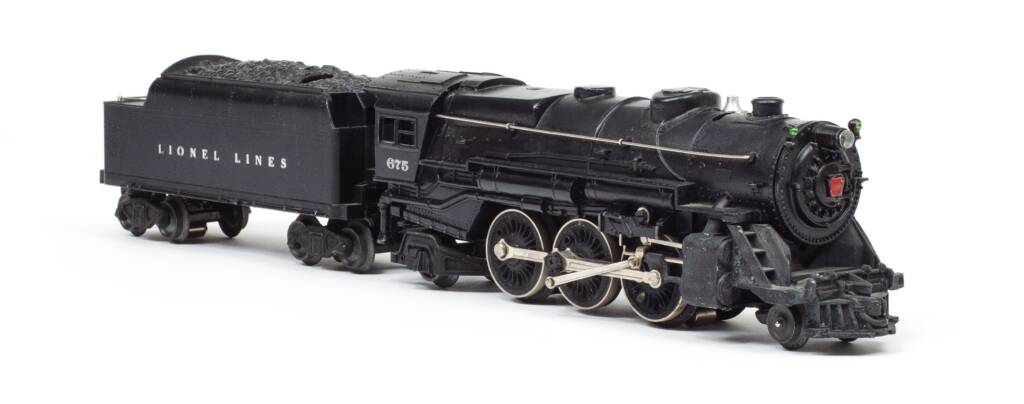
Dick Christianson, the founding editor of Classic Toy Trains and the consummate cheerleader for Lionel trains of the postwar era, was recently asked about his top locomotive. He’s owned several great steam and diesel models from the 1940s and ’50s. As editor, he observed virtually every locomotive Lionel cataloged in those decades and long after. […]
Read More…
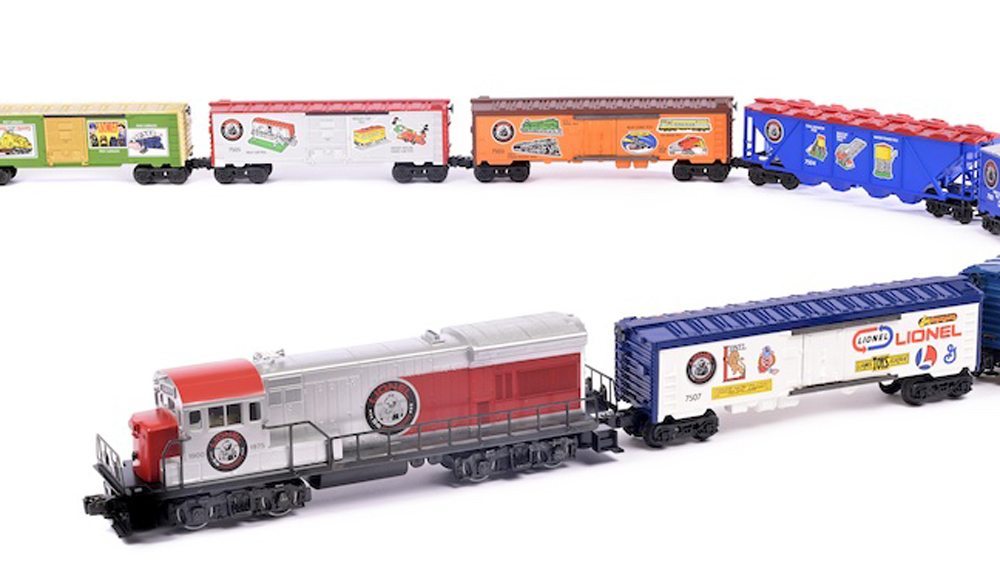
Lionel’s 75th Anniversary Commemorative Train Set arrived in stores in 1975. Fundimensions, a division of General Mills that was overseeing production and merchandising of Lionel trains, then created an outstanding and very colorful diesel freight set consisting of nine pieces to honor the grand heritage of Lionel. Lionel is, of course, about to celebrate its […]
Read More…
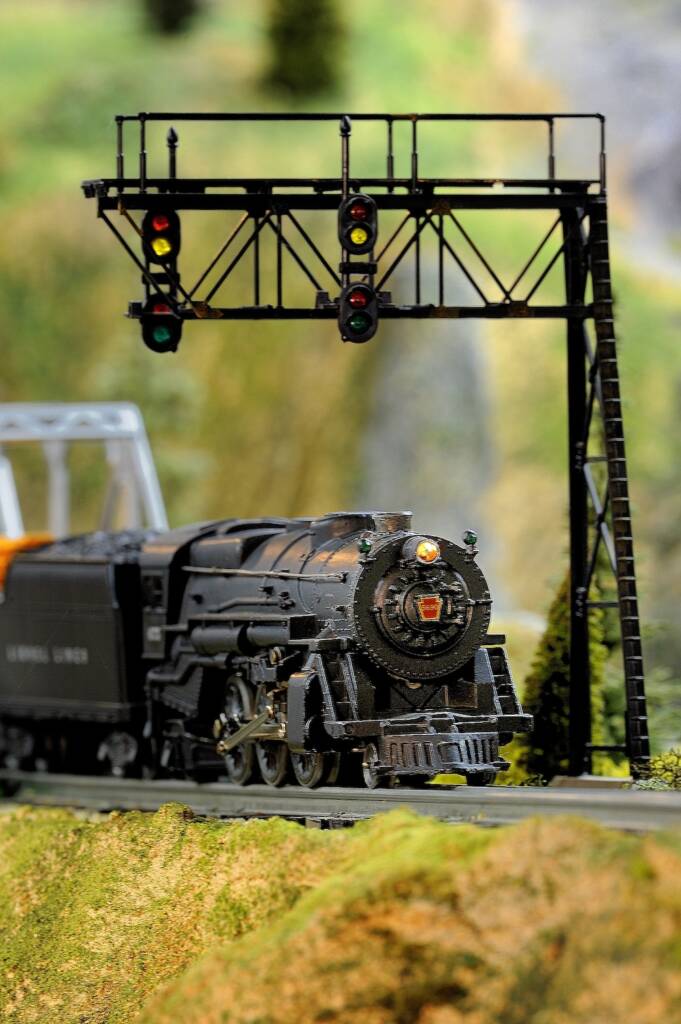
What toy train locomotive means the most to you? It just has to be Lionel’s famed 2-6-2 Prairie type locomotive that is still in my collection. How did you acquire it? This adventure started in 1947 at the early age of 5 years old, when Dad unpacked the Lionel train set he’d purchased downtown. We […]
Read More…
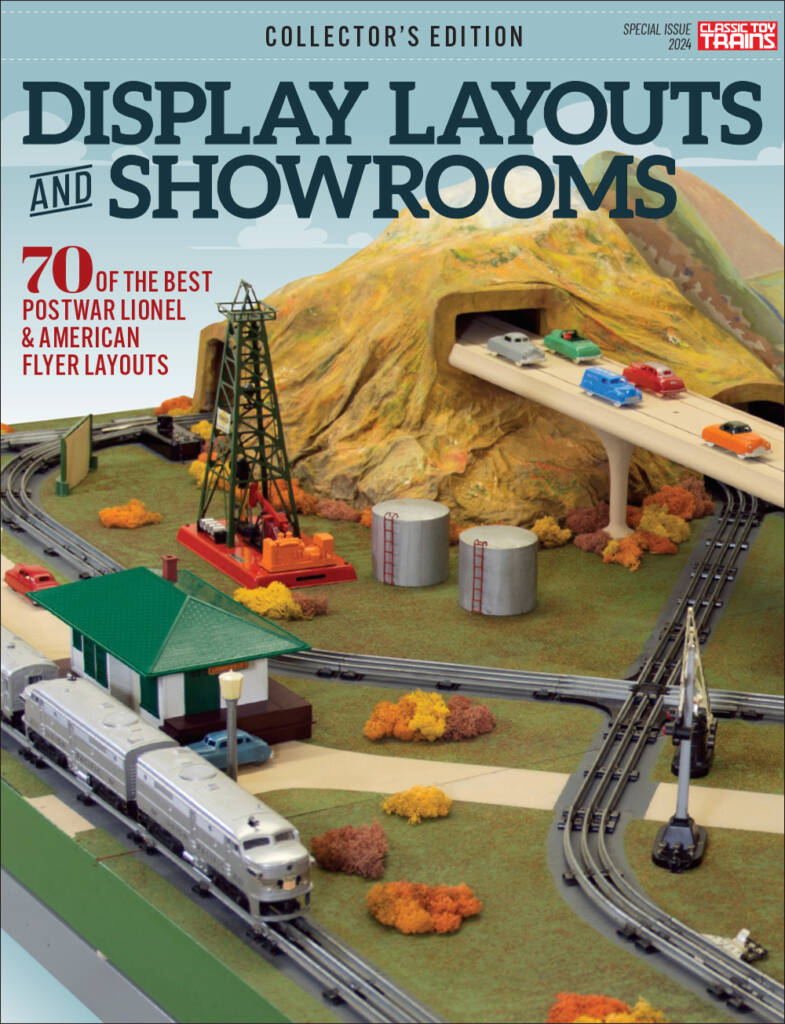
Display Layouts and Showrooms is the latest 100-page special or extra issue of Classic Toy Trains. The editors and artists responsible for the magazine are working overtime to make this unique publication the most informative and attractive it can be. The question, “Want a sip?” usually causes another person to ask about the beverage in […]
Read More…
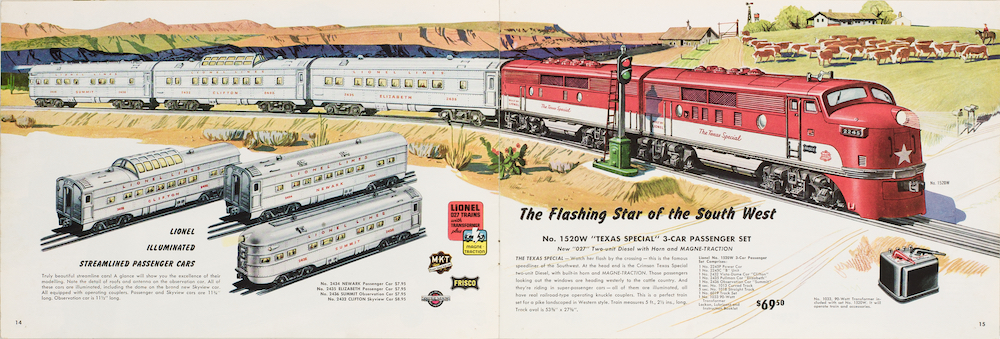
Lionel No. 2245 Texas Special F3 Diesel A and B Units celebrate their 70th anniversary this year. The beautiful O gauge locomotives made their debut in the noteworthy year of 1954 as separate-sale items priced at $39.95 ($470.63 in today’s dollars) and as the motive power in a pair of outstanding O-27 outfits: the Nos. […]
Read More…
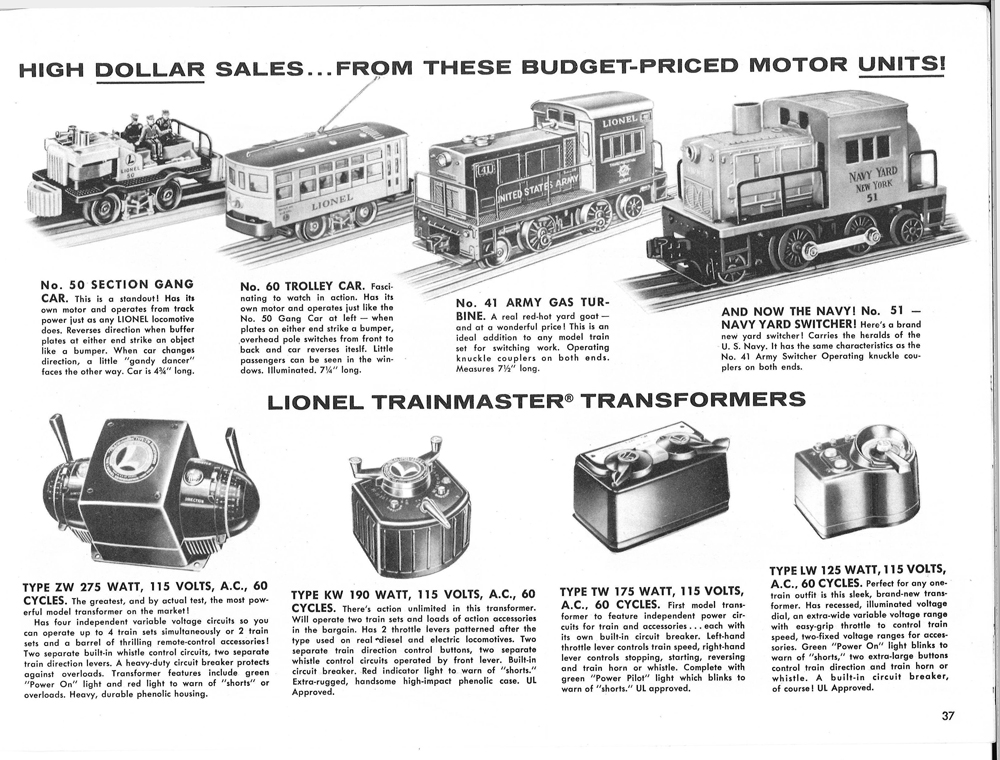
Kids of the 1950s loved Lionel’s little switch engines. The stubby proportions and whirling drive rods of these classics give them an industrious appearance as they scoot around a layout. Lionel produced them in a number of colorful and collectible variations. Did the prototypes really exist? Yes, at least in their initial releases. Lionel was […]
Read More…
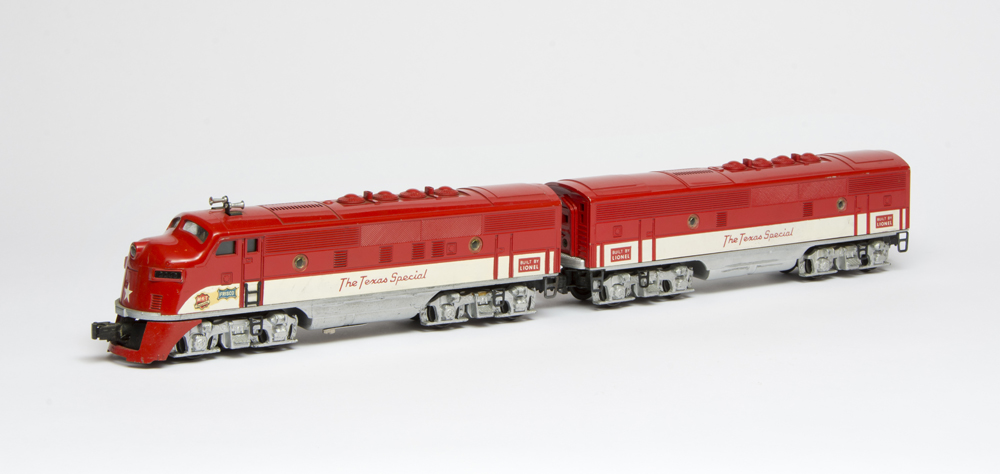
Joe Algozzini, perhaps the preeminent expert on Lionel trains and accessories manufactured during the post-World War II era (1945-69) has been contributing deeply researched and thoughtfully written articles to Classic Toy Trains since its second issue hit newsstands in the spring of 1988. To be honest, Joe was laying the groundwork for what became the […]
Read More…
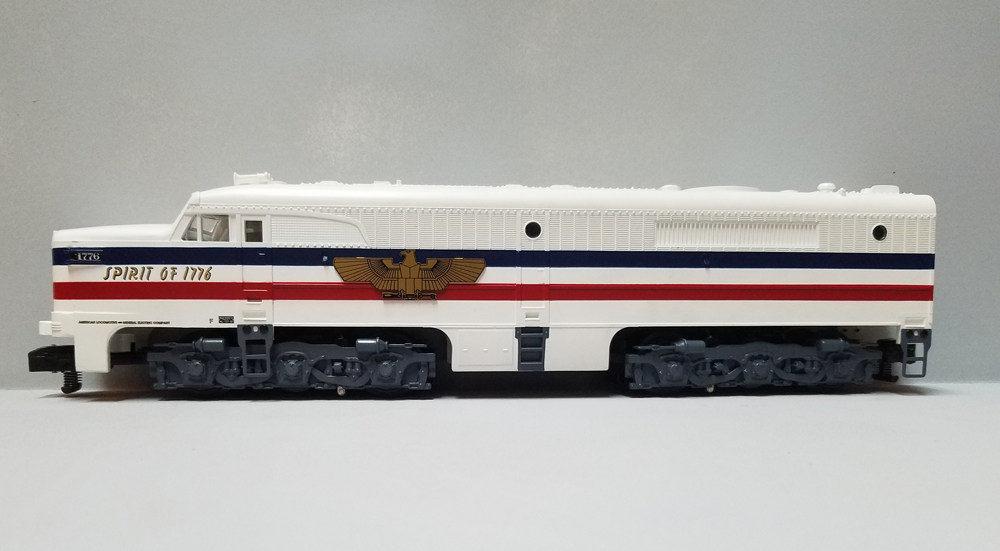
The concept of an American Freedom Train arose after WWII. It was a chance for Americans to reflect on their citizenship at a time when the United States was finding new roles in world affairs. The project was funded by donations and not at government expense. The American Heritage Foundation was created in 1947 to […]
Read More…











